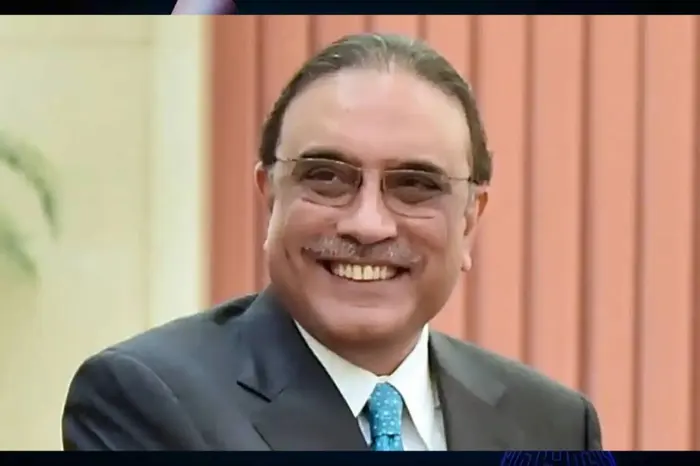(Image courtesy – Patrika)
President Asif Ali Zardari of Pakistan has taken a notable step in the face of the country’s economic challenges, deciding to forgo his presidential salary. This move, aimed at encouraging prudent financial management, underscores Zardari’s commitment to alleviating the economic burden on the national exchequer.
Zardari’s decision, announced through his Secretariat, comes at a time when Pakistan is grappling with significant economic issues. The country faces a range of challenges, from fiscal deficits to inflationary pressures, all of which have placed strain on the government’s finances.

(Image courtesy – Emirates 24/7)
According to the statement released by the President’s Secretariat, Zardari views it as essential not to burden the national exchequer further. By forgoing his salary, he seeks to set an example of responsible leadership and fiscal restraint, urging others to follow suit in the pursuit of prudent financial management.
This gesture is particularly significant given the broader context of economic difficulties facing Pakistan. It sends a message of solidarity with the Pakistani people, demonstrating a willingness to make personal sacrifices for the greater good of the nation.

(Image courtesy – Dawn)
Moreover, Zardari’s decision is not an isolated one. Newly sworn-in Interior Minister Mohsin Naqvi has also opted to forego his salary while in office. Naqvi, taking to social media, expressed his commitment to serving the nation in challenging times “in every possible way.” This parallel move underscores a collective commitment within the government to address economic challenges head-on.
Zardari’s return to the presidency marks a historic moment, as he becomes the only civilian candidate to be elected head of state for a second time. His previous tenure from 2008 to 2013 was marked by significant political and economic developments, including efforts to decentralize power and curb presidential authority.

(Image courtesy – The Federal)
Born in 1955 and educated in Karachi, Zardari’s political journey has been closely intertwined with that of his late wife, Benazir Bhutto, Pakistan’s former prime minister. His ascent to power has not been without controversy, as he spent 11 years in jail on graft charges, which he and his party attributed to military-backed political victimization.
Despite these challenges, Zardari’s leadership during his first term was characterized by a rare political consensus on adopting new legal and political frameworks aimed at decentralizing power and curbing presidential authority. His achievements in this regard were widely acknowledged as significant steps towards strengthening democratic governance in Pakistan.
As Zardari begins his second term, his decision to forgo his salary reflects a renewed commitment to fiscal responsibility and prudent management of public resources. It serves as a reminder that leadership requires making tough choices and personal sacrifices for the greater good of the nation.

(Image courtesy – Times Now)
However, while Zardari’s gesture is commendable, it is important to recognize that addressing Pakistan’s economic challenges requires comprehensive reforms and sustained efforts across multiple fronts. Fiscal discipline, structural reforms, and effective governance are essential for achieving long-term economic stability and prosperity.
In conclusion, President Asif Ali Zardari’s decision to forgo his salary amidst economic difficulties exemplifies leadership and a commitment to responsible governance. It sets a positive precedent for fiscal discipline and prudent financial management within the government and sends a message of solidarity with the Pakistani people. As Pakistan navigates its economic challenges, such gestures of sacrifice and responsibility will be crucial in charting a path towards sustainable development and prosperity.

